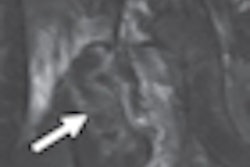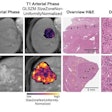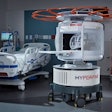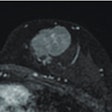A pelvic MRI scan with IV contrast and rectal balloon is effective in identifying local recurrence, even at low prostate-specific antigen (PSA) values in prostate cancer patients with a rising or persistently elevated PSA after prostatectomy, according to a study presented Friday at the Cancer Imaging and Radiation Therapy Symposium in Atlanta.
Researchers at MD Anderson Cancer Center evaluated 389 postprostatectomy patients treated between January 2004 and October 2010, with 143 receiving a pelvic MRI to determine if cancer cells were still present in the area of the surgical bed.
A total of 35 patients (24%) had suspicious MRI findings suggesting local recurrence; 23 patients were then biopsied, with all 23 showing cancer. Approximately 33% of patients with a biopsy-proven recurrence after suspicious MRI findings had a PSA of less than 1, with several having a PSA as low as 0.3.
Lead study author Dr. Seungtaek Choi and colleagues were surprised at the low PSA levels at which MRI could determine recurrent disease.
Being able to identify such patients is beneficial as a predictor of response to salvage radiation therapy, Choi added. It also may allow a radiation oncologist to treat the area of recurrent cancer to a higher radiation dose with or without hormone ablation therapy to increase the chance of a cure.
The symposium is co-sponsored by the American Society for Radiation Oncology (ASTRO) and RSNA.


.fFmgij6Hin.png?auto=compress%2Cformat&fit=crop&h=100&q=70&w=100)





.fFmgij6Hin.png?auto=compress%2Cformat&fit=crop&h=167&q=70&w=250)











